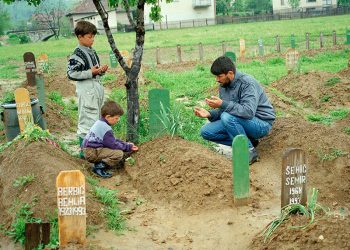Human Lives Human Rights: Peru has breached the rights to health and life of a rural and indigenous girl who was raped by denying her information and access to legal and safe abortion.
The girl, Camila (pseudonym), was sexually abused by her father from age nine until she got pregnant at age 13.
Camila was born in Huanipaca, Apurímac, a rural area of the Peruvian highlands. When she got pregnant in 2017, a relative took her to a hospital in Abancay, where she cried and told the hospital staff that she did not want to be pregnant or have her father’s child. She repeated this statement throughout her medical visits as her mental health worsened. However, she was not informed of her right to have a therapeutic abortion.
Abortion is illegal in Peru except to prevent a risk to the life or a severe and permanent threat to the mother’s health. With the help of an NGO, Camila asked the Abancay hospital to access therapeutic abortion according to national legislation, and she also submitted a request for voluntary termination of pregnancy to the prosecutor in charge of the criminal investigation for rape so that a health centre could be designated to assess her case. However, she received no answer from either the hospital or the judicial authorities.
Instead, the medical staff insisted on arranging regular prenatal check-ups ignoring Camila’s condition. When Camila did not show up for prenatal care, medical staff went to her home several times, sometimes accompanied by police officers, to pressure her to continue with the pregnancy, which caused her stigmatisation and harassment within her family and community and forced her to leave school and later her village.
After having a spontaneous abortion, Camila was accused and convicted of self-abortion based on no evidence other than her repeated statements that she did not wish to continue with the pregnancy.
Camila was further harassed by the prosecutor in charge of her rape case. The prosecutor ordered the examination of the crime scene with the mandatory presence of Camila and her father and repeatedly summoned Camila to testify. The prosecutor also diverted the rape investigation to focus on gathering incriminating evidence of the alleged crime of self-abortion.
We are outraged by the way in which a 13-year-old victim of rape and incest has been treated by national authorities.
Instead of being protected, given her extreme vulnerability, she was further re-victimised and harassed by health, police and judicial authorities.
Deprived of justice in her home country, Camila brought her case before the CRC, claiming that her rights under the Child Rights Convention had been violated.
Camila, a rural and indigenous child victim of rape, was re-victimised by the health, police and judicial authorities, as her request for an abortion was constantly ignored, her home and school were often invaded, and she was prosecuted for self-abortion.
Camila faced discrimination based on her age, gender, ethnic origin and social status. Camila’s lack of access to safe abortion constituted differential treatment based on her gender, denying her access to a service essential to her health and punishing her for not complying with gender stereotypes about her reproductive role.
Human rights organizations urge Peru to decriminalise abortion in all cases of child pregnancy, ensure access to safe abortion services and post-abortion care for pregnant girls, especially in cases of risk to the life and health of the mother, rape or incest, and to amend the regulations governing access to therapeutic abortion to provide for its specific application to girls.
Hopefully Camila’s courage would trigger structural changes in Peruvian legislation and institutions so that girls can access safe abortion given the high risk that pregnancies pose to their health and lives.
















